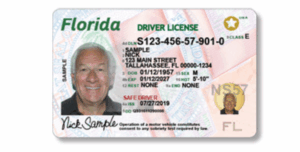NC Drivers License, Obtaining a driver’s license is a significant milestone for many individuals, and in North Carolina (NC), the process is straightforward but requires adherence to several important steps. Whether you’re a new driver or new to the state, understanding how to get your NC driver’s license, the requirements, and the benefits it offers is essential. This article will provide a comprehensive guide to the NC driver’s license process, including tips for success.
What is the NC Driver’s License?
An NC driver’s license is an official document issued by the North Carolina Division of Motor Vehicles (NCDMV) that allows you to operate a motor vehicle legally within the state. It is required for anyone who plans to drive on public roads, and it serves as an official proof of identity. North Carolina offers several types of driver’s licenses, including provisional, regular, and commercial, each designed to meet the specific needs of different drivers.
Steps to Obtain a North Carolina Driver’s License
1. Determine Eligibility
Before applying for your NC driver’s license, you must meet the eligibility requirements. The basic requirements include:
- You must be at least 16 years old to apply for a provisional license, or 18 for a full, unrestricted license.
- You must be a resident of North Carolina.
- You must have held a valid learner’s permit for a minimum of 12 months if you are under 18.
2. Complete Driver Education (If Applicable)
If you are under 18, you are required to complete a driver’s education course approved by the NCDMV. This course includes both classroom instruction and behind-the-wheel training. It helps ensure that you understand the rules of the road, traffic signs, and safe driving practices before getting behind the wheel.
3. Pass the Vision Test
At the DMV office, you will need to pass a vision test to demonstrate that you meet the minimum vision standards for driving. If you need corrective lenses, such as glasses or contact lenses, make sure to wear them during the test.
4. Take the Written Knowledge Test
Next, you will need to pass a written knowledge test that covers traffic laws, road signs, and safe driving practices. Study the North Carolina Driver’s Handbook to prepare for the exam. The test can be taken on a computer at the DMV office or online for certain applicants.
5. Schedule a Road Test
Once you pass the knowledge test, you will need to schedule a road test. The road test assesses your ability to operate a vehicle and follow the traffic laws in real-time. Ensure that you practice driving beforehand and are familiar with basic maneuvers such as parallel parking, stopping at intersections, and turning.
6. Provide Documentation
When you visit the NCDMV to apply for your NC driver’s license, you must provide certain documents to prove your identity, legal presence in the United States, and state residency. These documents may include:
- A valid passport or birth certificate
- Proof of North Carolina residency (such as a utility bill)
- Your Social Security number (or proof of ineligibility for a Social Security number)
7. Pay the Fees
There are various fees associated with obtaining an NC driver’s license. These fees vary depending on the type of license you are applying for and the duration of validity. Check with the NCDMV for current fee structures.
8. Receive Your License
After successfully completing all the necessary steps and passing the required tests, you will be issued an NC driver’s license. If you are under 18, you will initially receive a provisional license, which comes with certain restrictions. Once you turn 18, you can upgrade to a full, unrestricted license.
Types of North Carolina Driver’s Licenses
There are several types of driver’s licenses issued by the NCDMV, including:
- Provisional License: For drivers between the ages of 16 and 18 who have completed driver education and held a learner’s permit for at least 12 months.
- Full, Unrestricted License: Issued to drivers who are 18 or older and have met all the eligibility and testing requirements.
- Commercial Driver’s License (CDL): For individuals who want to drive large trucks or buses.
- Motorcycle License: A special license for those who wish to operate motorcycles or mopeds.
Benefits of Having an NC Driver’s License
Having a valid NC driver’s license offers many benefits:
- Legal Driving Privileges: With an NC driver’s license, you can legally drive within the state and other states in the U.S. It also serves as an official form of identification.
- Access to State Services: The NC driver’s license is often required to open a bank account, apply for credit, and obtain certain state services.
- Improved Mobility: A driver’s license provides greater independence and flexibility, making it easier to commute, run errands, and travel.
- Eligibility for Vehicle Registration: If you own a vehicle in North Carolina, having a driver’s license is often a requirement to register it.
Conclusion
Obtaining an NC driver’s license is an essential step for anyone living in the state who plans to drive. By following the required steps, from completing driver education (if necessary) to passing your tests and paying the appropriate fees, you can successfully acquire your driver’s license and enjoy the many benefits it provides. Always ensure that you keep your license up to date and follow the rules of the road to ensure safety for yourself and others.



